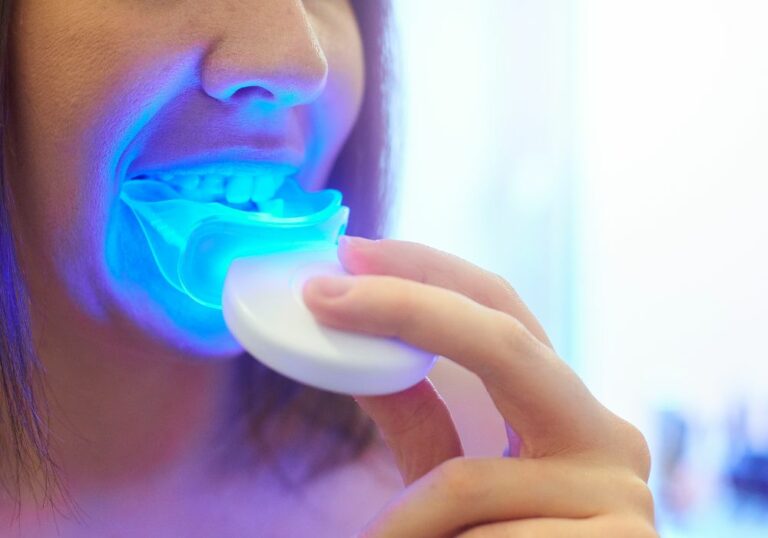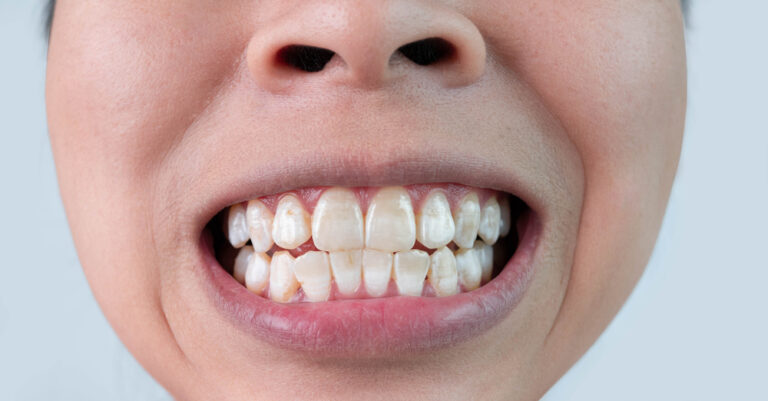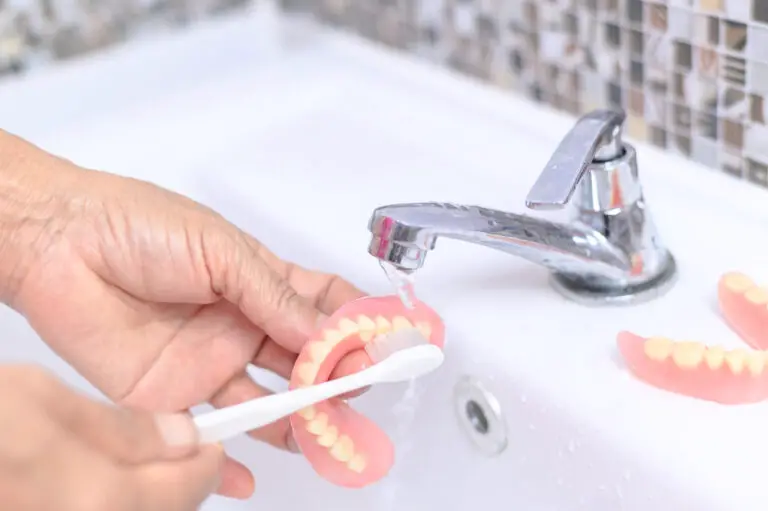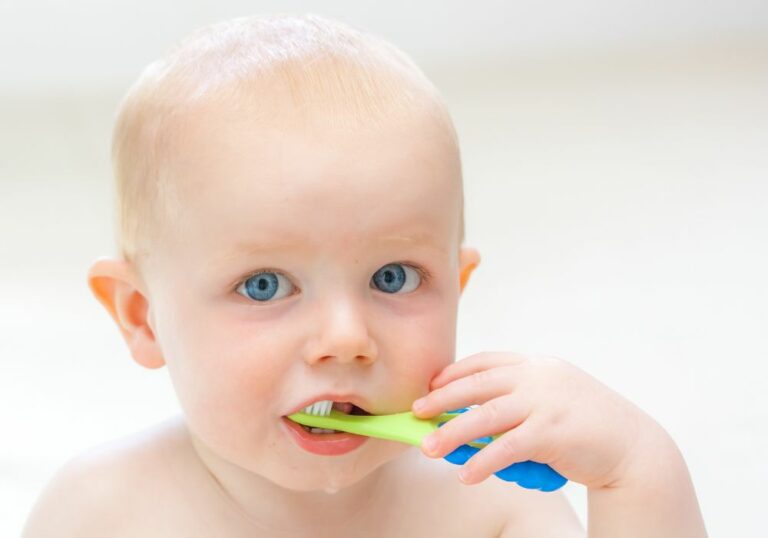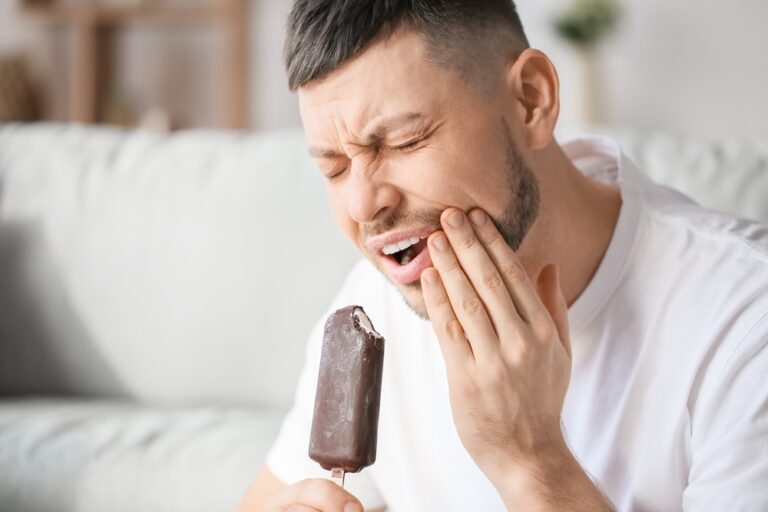Spitting blood in the morning after brushing your teeth can be alarming and may leave you wondering why it’s happening. While there are several reasons why you may experience this, it’s important to understand the basics of oral hygiene and how it can affect your mouth’s health.
Maintaining good oral hygiene is essential to prevent dental issues, such as gum disease and tooth decay. Poor oral hygiene can lead to plaque buildup, which can cause inflammation and bleeding of the gums. This can result in spitting blood when brushing your teeth. However, there are other dental issues and medical conditions that can cause blood in saliva.
In this article, we will explore the link between oral hygiene and spitting blood, common dental issues leading to blood in saliva, and medical conditions that can cause this symptom. We will also provide preventive measures and answer frequently asked questions. Understanding the causes and preventive measures can help you take the necessary steps to maintain good oral health and seek medical help if needed.
Key Takeaways
- Maintaining good oral hygiene is essential to prevent dental issues that can cause blood in saliva.
- Common dental issues, such as gum disease, can lead to spitting blood when brushing your teeth.
- Seeking medical help and taking preventive measures can help maintain good oral health and prevent blood in saliva.
Understanding the Basics

Definition of Hemoptysis
Hemoptysis is the medical term used to describe the coughing up of blood or blood-stained sputum from the respiratory tract. It is often a symptom of an underlying medical condition, such as a respiratory infection, bronchitis, pneumonia, or lung cancer. Hemoptysis can range from mild to severe, and it is important to seek medical attention if you experience this symptom.
Causes of Spitting Blood
If you are spitting blood after brushing your teeth, it is likely that the blood is coming from your gums. Gum disease, also known as periodontal disease, is a common cause of bleeding gums. This occurs when the gums become inflamed and infected, causing them to bleed easily. Other causes of bleeding gums include:
- Brushing too hard
- Vitamin deficiencies
- Hormonal changes during pregnancy or menopause
- Certain medications, such as blood thinners
It is important to visit your dentist if you are experiencing bleeding gums, as this can lead to more serious dental problems if left untreated.
In rare cases, spitting blood can be a sign of a more serious medical condition, such as lung cancer or tuberculosis. If you are experiencing other symptoms, such as chest pain, difficulty breathing, or a persistent cough, it is important to seek medical attention as soon as possible.
Remember, spitting blood after brushing your teeth is not normal and should be evaluated by a medical professional.
Link Between Oral Hygiene and Spitting Blood
Maintaining good oral hygiene is essential for overall health. Brushing teeth twice a day is a common practice that many people follow to keep their teeth and gums healthy. However, spitting blood after brushing teeth can be an alarming sign that something is not right. In this section, we will discuss the link between oral hygiene and spitting blood.
Role of Brushing
Brushing teeth helps to remove plaque and bacteria that can cause gum disease, bad breath, and tooth decay. However, if the teeth are not brushed properly, the gums can become inflamed and bleed. The bleeding can be exacerbated by using a toothbrush with hard bristles or brushing too aggressively. It is important to use a soft-bristled toothbrush and brush gently in a circular motion to avoid damaging the gums.
Impact of Aggressive Brushing
Aggressive brushing can cause damage to the gums and teeth, leading to bleeding and other dental problems. Using a toothbrush with hard bristles can cause the enamel on the teeth to wear away, making them more susceptible to decay. It can also cause the gums to recede, exposing the sensitive roots of the teeth. This can lead to tooth sensitivity and pain.
In conclusion, spitting blood after brushing teeth can be a sign of poor oral hygiene or aggressive brushing. It is important to brush teeth properly and gently to avoid damaging the gums and teeth. If bleeding persists, it is recommended to consult a dentist to rule out any underlying dental problems.
Common Dental Issues Leading to Blood in Saliva

If you notice blood in your saliva after brushing your teeth, it could be a sign of an underlying dental issue. Here are some common dental problems that can cause bleeding in the mouth:
Gum Disease
Gum disease, also known as periodontal disease, is a common cause of bleeding gums. It is caused by the buildup of plaque and tartar on the teeth, which can lead to inflammation and infection of the gums. Symptoms of gum disease include red, swollen, and bleeding gums, as well as bad breath and loose teeth. If left untreated, gum disease can lead to tooth loss and other serious health issues.
Oral Infections
Oral infections, such as thrush or oral herpes, can also cause bleeding in the mouth. Thrush is a fungal infection that can cause white patches on the tongue and inside the mouth, while oral herpes is a viral infection that can cause painful sores on the lips and gums. If you suspect that you have an oral infection, it is important to see your dentist or doctor for treatment.
Tooth Decay
Tooth decay, or cavities, can also cause bleeding in the mouth. When a cavity becomes deep enough to reach the pulp of the tooth, it can cause an infection that can lead to bleeding and pain. If left untreated, tooth decay can lead to tooth loss and other serious dental problems.
In conclusion, if you are experiencing bleeding in the mouth, it is important to see your dentist for an evaluation. By identifying and treating the underlying dental issue, you can prevent further damage to your teeth and gums and maintain good oral health.
Medical Conditions That Can Cause Blood in Saliva

If you notice blood in your saliva after brushing your teeth in the morning, it may be a sign of an underlying medical condition. Here are some of the medical conditions that can cause blood in saliva:
Lung Conditions
Several lung conditions can cause blood in saliva, such as:
- Lung cancer
- Bronchitis
- Pneumonia
If you have a persistent cough or shortness of breath, you should see a doctor immediately. They can perform tests to diagnose the condition and recommend appropriate treatment.
Gastrointestinal Issues
Gastrointestinal issues can also cause blood in saliva. Some of the common gastrointestinal causes include:
- Inflammation and infections, such as gastritis
- Gum disease
- Tooth extraction
If you have any digestive symptoms like stomach pain, nausea, or vomiting, you should see a doctor immediately. They can perform tests to diagnose the condition and recommend appropriate treatment.
Blood Disorders
Blood disorders can also cause blood in saliva. Some of the common blood disorders that can cause this symptom include:
- Hemophilia
- Leukemia
- Thrombocytopenia
If you have any symptoms like easy bruising, prolonged bleeding, or fatigue, you should see a doctor immediately. They can perform tests to diagnose the condition and recommend appropriate treatment.
It’s important to note that the above medical conditions are not the only causes of blood in saliva. If you notice blood in your saliva, you should see a doctor immediately to determine the underlying cause and receive appropriate treatment.
When to Seek Medical Help
If you are spitting blood in the morning after brushing your teeth, it’s important to know when to seek medical help. While it may not always be a serious issue, it’s always best to err on the side of caution and consult with a healthcare professional.
Symptoms to Watch Out For
If you are experiencing any of the following symptoms along with spitting blood, seek medical attention immediately:
- Coughing up large amounts of blood
- Difficulty breathing
- Chest pain
- Dizziness or fainting
- Rapid heartbeat
- Severe abdominal pain
- Vomiting blood
These symptoms may indicate a more serious underlying condition that requires immediate medical attention.
Importance of Timely Intervention
It’s important to seek medical help as soon as possible if you are spitting blood in the morning after brushing your teeth. Delaying medical intervention can lead to complications and worsen the condition.
In some cases, spitting blood may be a sign of a serious underlying condition, such as lung cancer, tuberculosis, or bronchitis. Early detection and treatment can increase the chances of a successful recovery.
If you are unsure whether your symptoms require medical attention, it’s always best to consult with a healthcare professional. They can help determine the underlying cause of your symptoms and provide appropriate treatment.
Preventive Measures

Proper Oral Hygiene
Maintaining proper oral hygiene is the most effective way to prevent bleeding gums and other oral health issues. Brush your teeth twice a day with fluoride toothpaste for two minutes each time. Be sure to use a soft-bristled toothbrush and brush gently in circular motions. Floss at least once a day to remove plaque and food particles from between your teeth. Consider using an antiseptic mouthwash to kill bacteria and freshen your breath.
Regular Dental Checkups
Regular dental checkups are essential for maintaining good oral health. Your dentist can detect and treat early signs of gum disease, cavities, and other oral health issues before they become more serious. Schedule dental checkups at least twice a year, or more often if your dentist recommends it.
Healthy Lifestyle Choices
Your overall health can have a significant impact on your oral health. Eating a healthy, balanced diet can help prevent gum disease and other oral health issues. Avoid sugary and acidic foods and drinks, as they can erode tooth enamel and contribute to tooth decay. Quitting smoking and limiting alcohol consumption can also improve your oral health and reduce your risk of gum disease.
By following these preventive measures, you can maintain good oral health and reduce your risk of bleeding gums and other oral health issues.
Frequently Asked Questions
What causes blood in saliva after brushing teeth?
There are several reasons why you may experience blood in your saliva after brushing your teeth. One of the most common causes is gingivitis, which is a mild form of gum disease. Other possible causes include brushing too hard, mouth ulcers, or an injury to your mouth.
Can acid reflux cause blood in spit in the morning?
Yes, acid reflux can cause blood in your saliva in the morning. This is because the acid from your stomach can irritate your esophagus and cause inflammation. Over time, this inflammation can lead to bleeding and the presence of blood in your saliva.
What are the common causes of spitting blood in the morning?
The most common causes of spitting blood in the morning are gum disease, acid reflux, and respiratory infections. Other possible causes include allergies, dry mouth, and certain medications.
Is it normal to spit blood after brushing teeth?
No, it is not normal to spit blood after brushing your teeth. If you notice blood in your saliva, it is important to see a dentist or doctor to determine the underlying cause.
What are the symptoms of esophagitis?
The symptoms of esophagitis can include difficulty swallowing, chest pain, heartburn, and the presence of blood in your saliva or vomit. If you are experiencing any of these symptoms, it is important to see a doctor.
What are the possible reasons for black spit after brushing teeth?
Black spit after brushing your teeth can be caused by a variety of factors, including smoking, certain medications, and certain foods or drinks. If you are experiencing black spit, it is important to see a doctor to determine the underlying cause.


